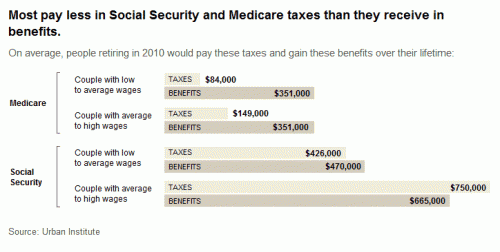I Would Go Where the Jobs Are
Bloomberg does a ranking of where one should go if he is unemployed. Before we go to their ranking criteria, lets think about what criteria I would recommend to someone:
- Go where the jobs are. Duh. Pay particular attention to where there are jobs that match your skills, but in general a rising tide will lift all boats (e.g. you don't just have to be an oil field worker to find opportunity in North Dakota, they are paying a fortune for waitresses and retail clerks to handle the new demand).
- Look at pay for your skills vs. cost of living. Manhattan may pay the most for waitresses but living costs there are insane. You can get good work in Vail, Colorado over the winter but good luck finding a low cost place to live anywhere nearby.
- Think about tax rates. You may be exempt now, but hopefully as things get better you will care about income tax rates, and if you are unemployed you certainly are going to care about sales tax rates
OK, so let's look at Bloomberg's ranking criteria. They also have three:
- Unemployment rate. So far so good. Go where the jobs are.
- State unemployment payment rates. Seriously, their criteria is not cost of living or average payments for new workers, but how much one can extract from the government for NOT working? But OK, this still makes some sense (though there are a lot of barriers to crossing state lines for a better unemployment deal).
- Income inequality. WTF? What in heavens name does this have to do with unemployed people and how easily they can improve themselves. Is this psychological -- ie you will feel worse about being unemployed if there are a lot of rich people around? The average unemployed American is a service worker (if you are a skilled manufacturing worker, say a machine operator, and can't find work, you are in a minority). Rich people drive demand for service workers.
